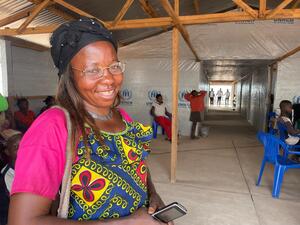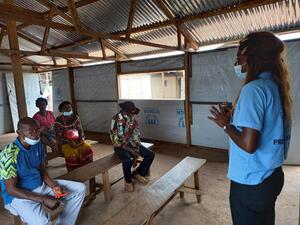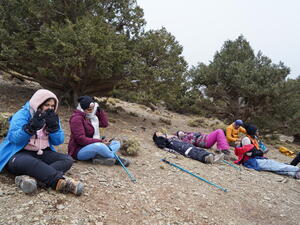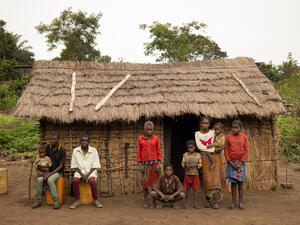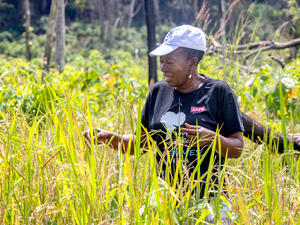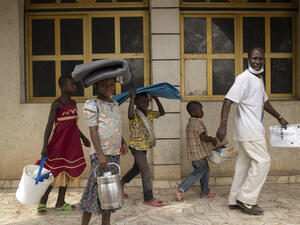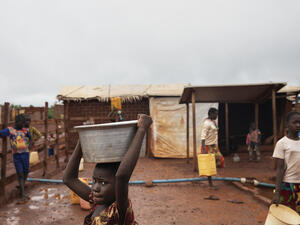Congo: Angolans to be repatriated to Cabinda
Congo: Angolans to be repatriated to Cabinda
UNHCR next week will repatriate of 822 Angolans from Pointe-Noire (Republic of Congo), to the enclave of Cabinda, an oil-rich piece of Angolan territory separated from the rest of the country by a strip of Congolese territory. UNHCR sees the enclave as the only safe area in Angola.
Returnees will make the 120-km trip by truck from Pointe-Noire to Cacongo, 46 kilometres north of Cabinda City, where Angola's Social Ministry has allocated a site for a transit centre. The 182 families will stay a maximum of five nights before being collected by relatives or transported back to their home area in and around Cacongo and Cabinda city.
Cabinda's provincial authorities have equipped the transit site with tents, water and electricity and a provisional health post with two nurses and a doctor. Officials from the Ministry of Justice will carry out civil registration of the returnees, who will also be assisted later in obtaining ID cards. The government is providing rice, beans and vegetable oil, while UNHCR is sending family kits which include plastic sheeting, pots and pans, and buckets.
In Cabinda city, land is being set aside for newcomers. Each returnee will be given a large enough plot of land to build a three-bedroom house and half a hectare of arable land. They will also receive construction material and a cash allocation of US$ 65 per person.
Next week's returnees have been living in Pointe Noire, Congo-Brazzaville, since 1993. But many more have been in both Congos for much longer, having fled Cabinda in the seventies when separatist troops sparked trouble in the oil-rich enclave. There are still 13,000 Angolan refugees from Cabinda in Pointe-Noire, and probably over 30,000 in the DRC. This is the third repatriation movement assisted by UNHCR in as many years, but Cabinda has also absorbed an average of 5,000 spontaneous returns each year since 1998.
More than 435,000 Angolans still remain outside the country as refugees, the majority living in camps in neighbouring DRC and Zambia, and each month sees their number rise. Most of these refugees however come from unsafe regions of Angola where UNHCR does not repatriate at this stage.



